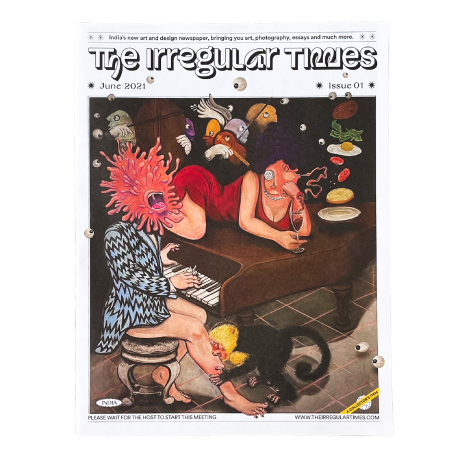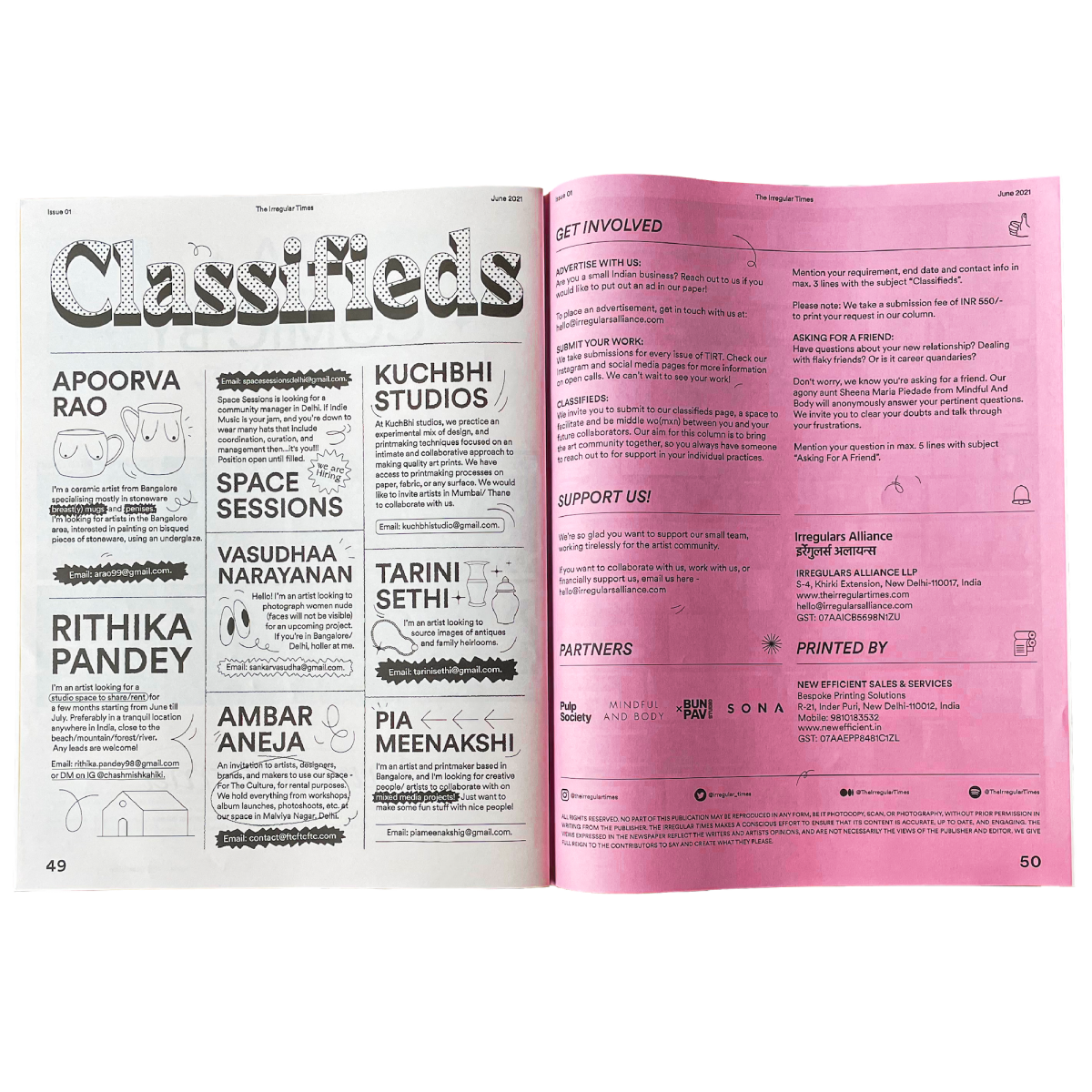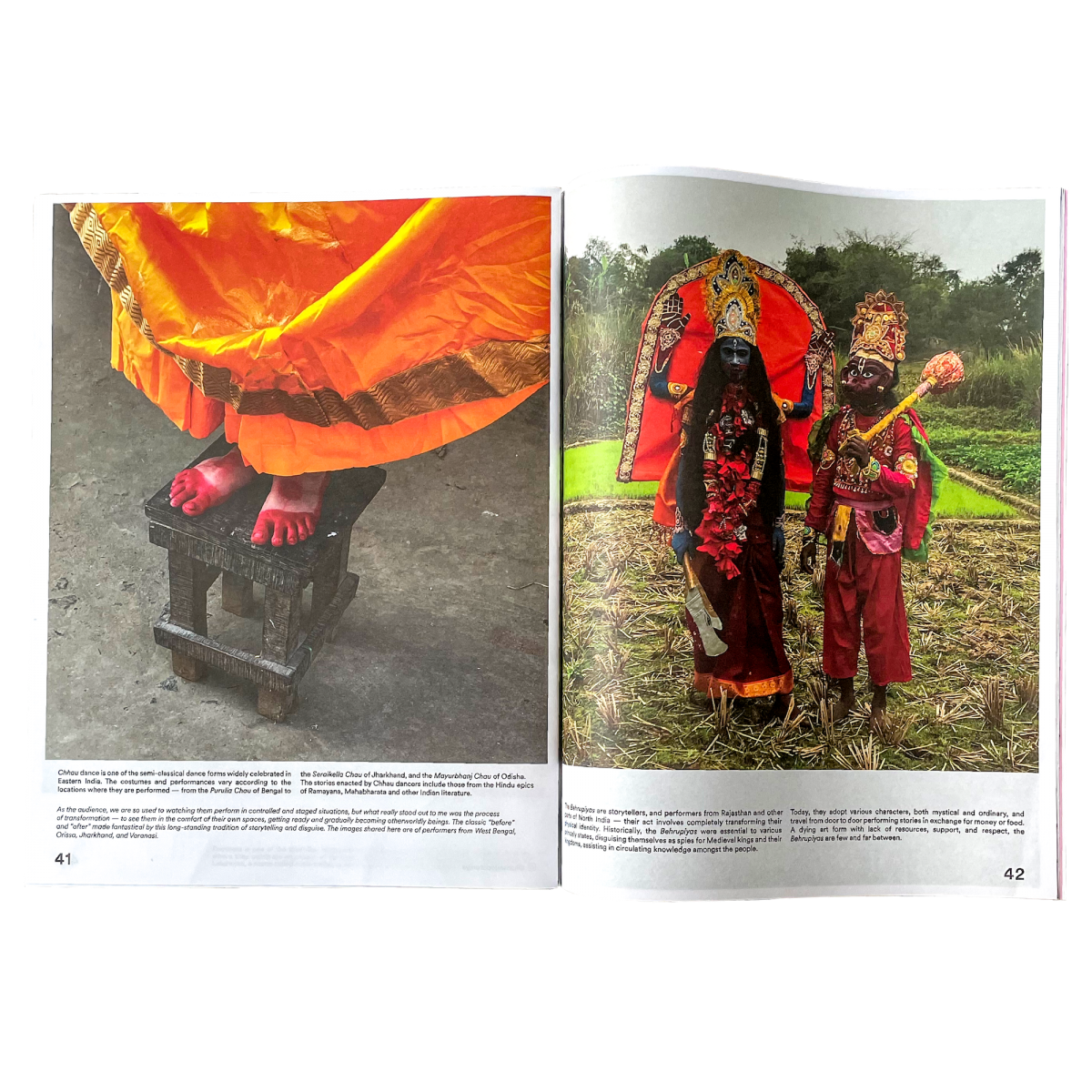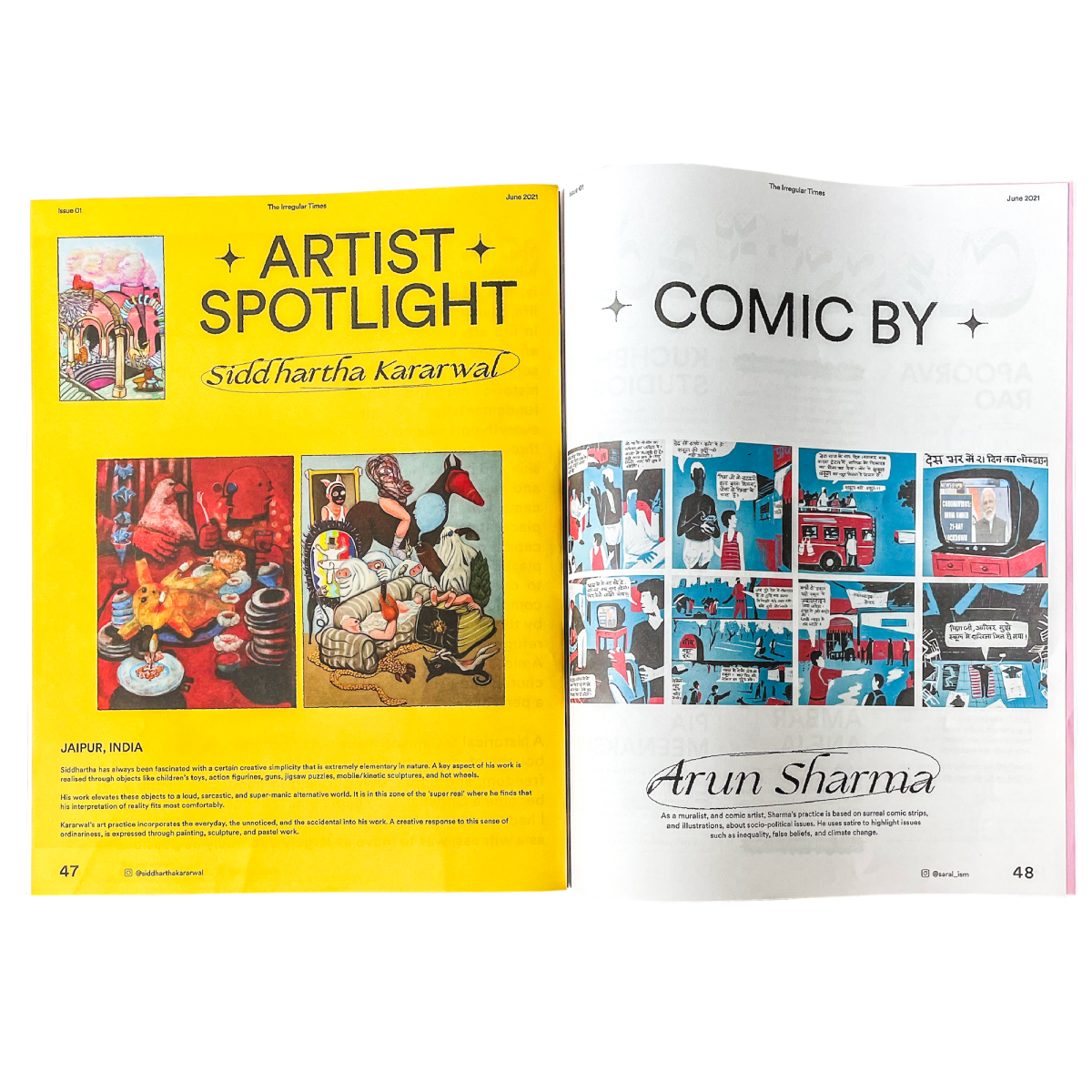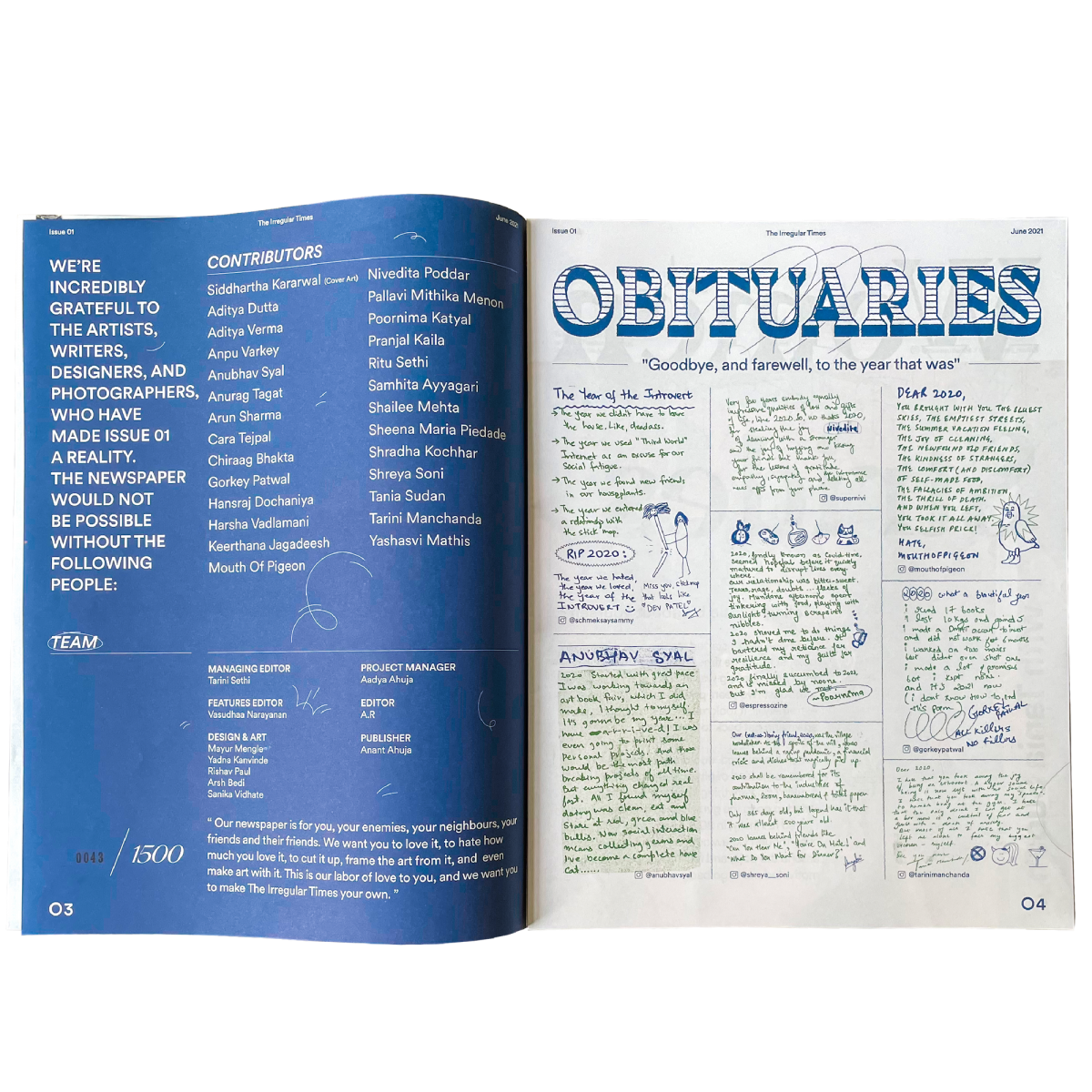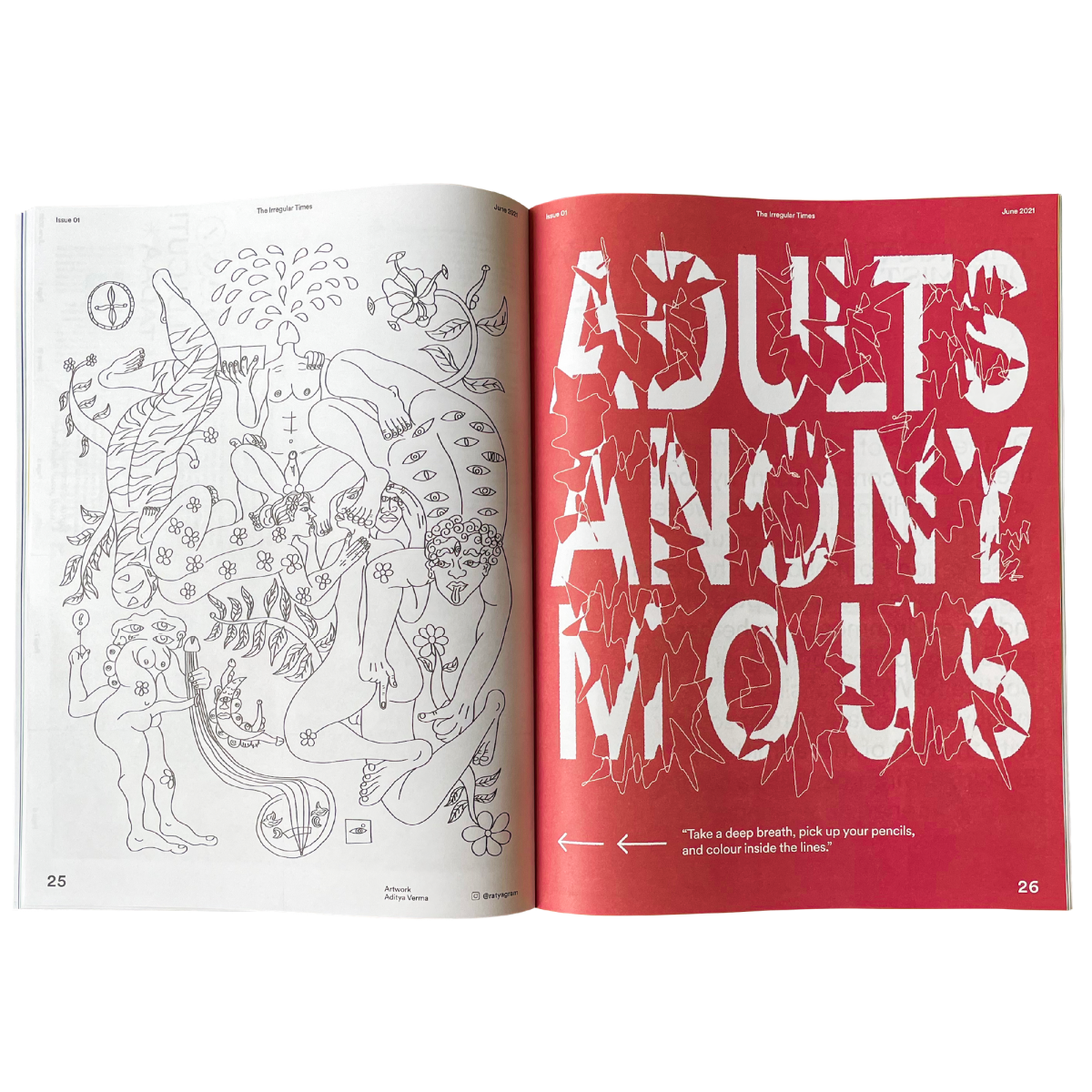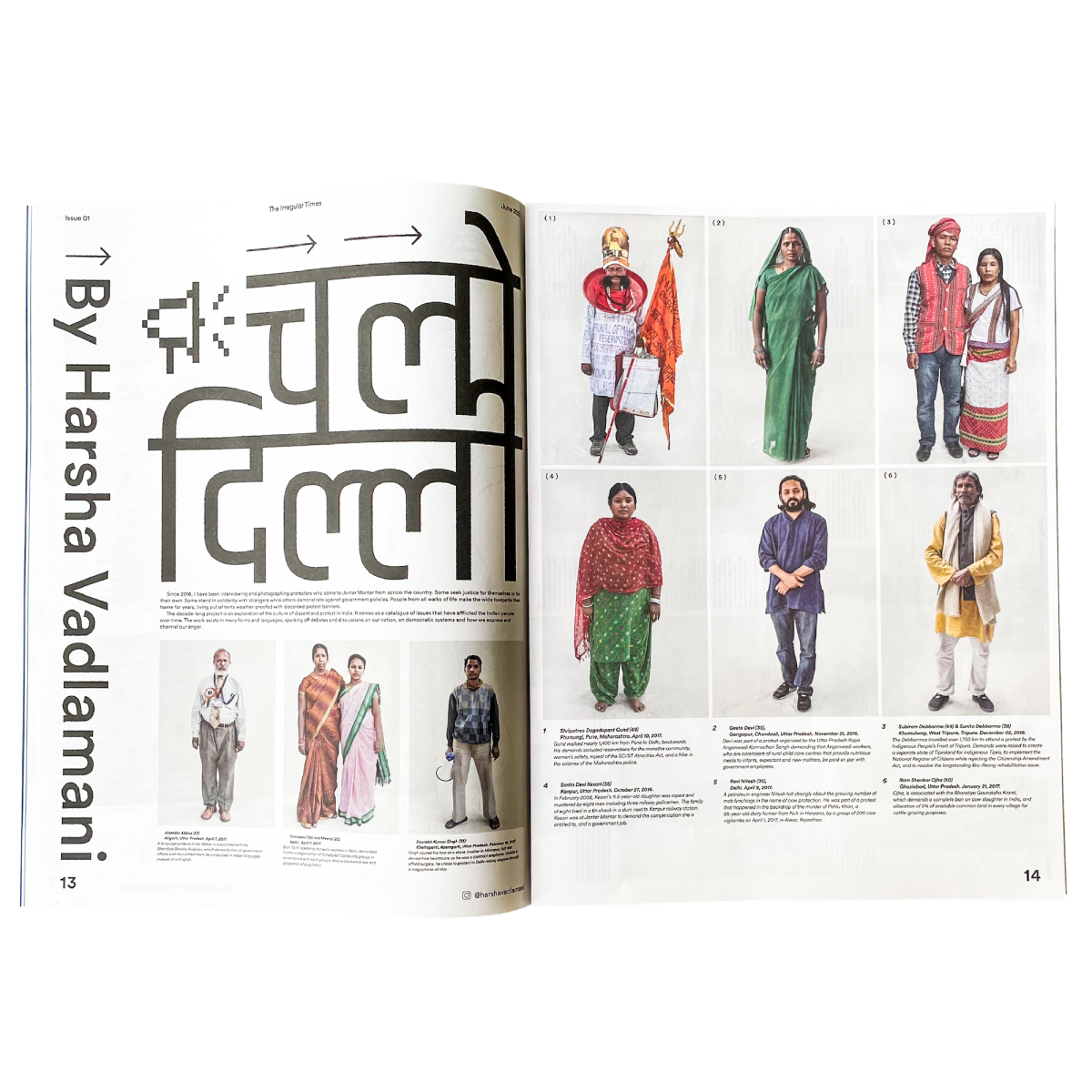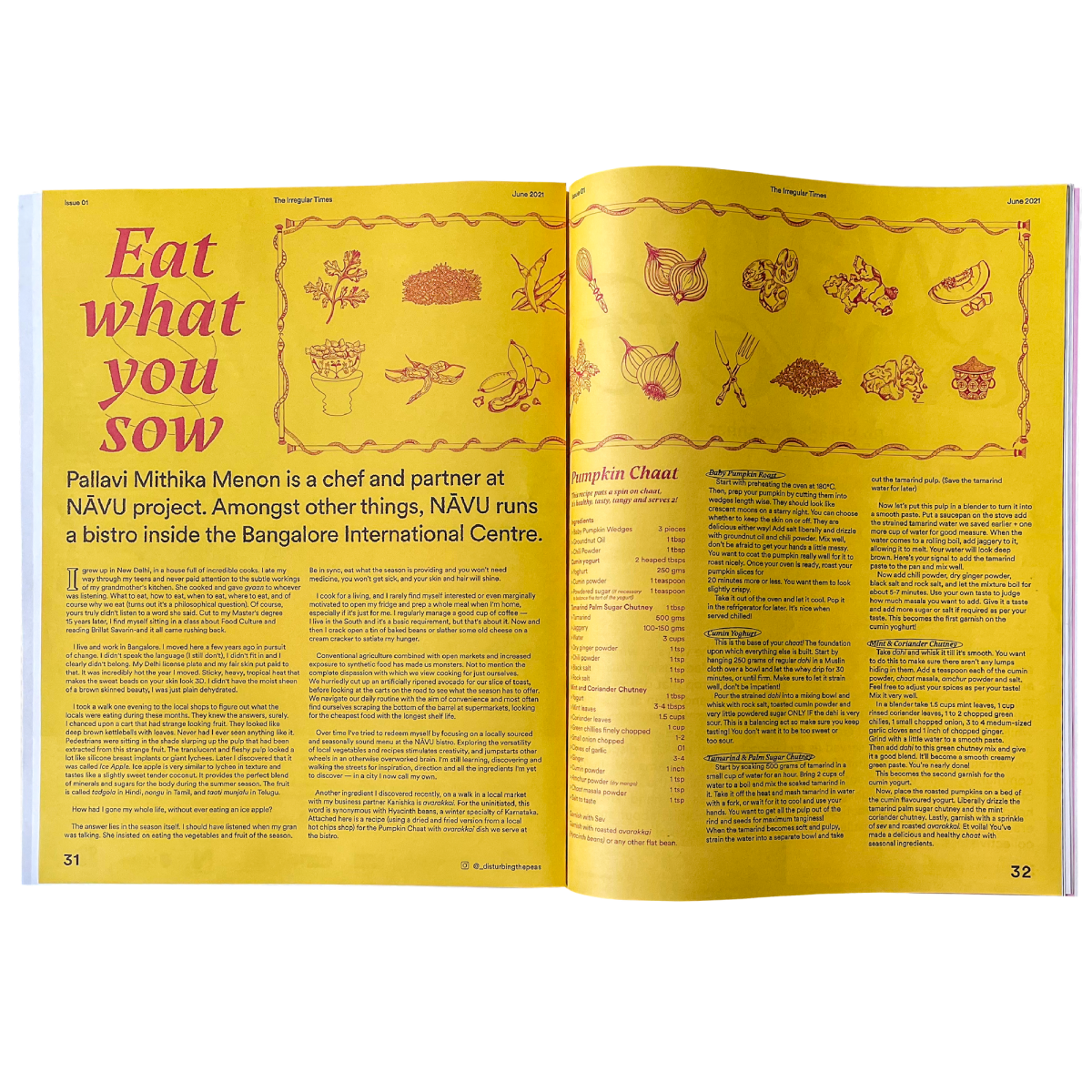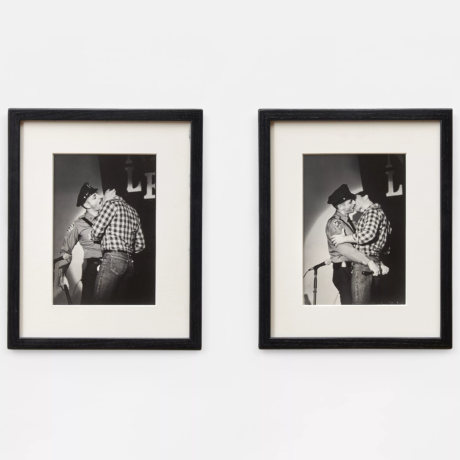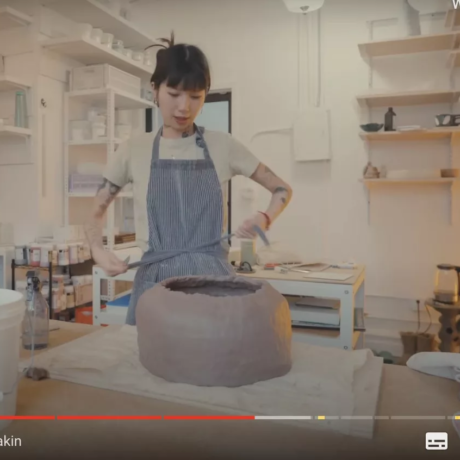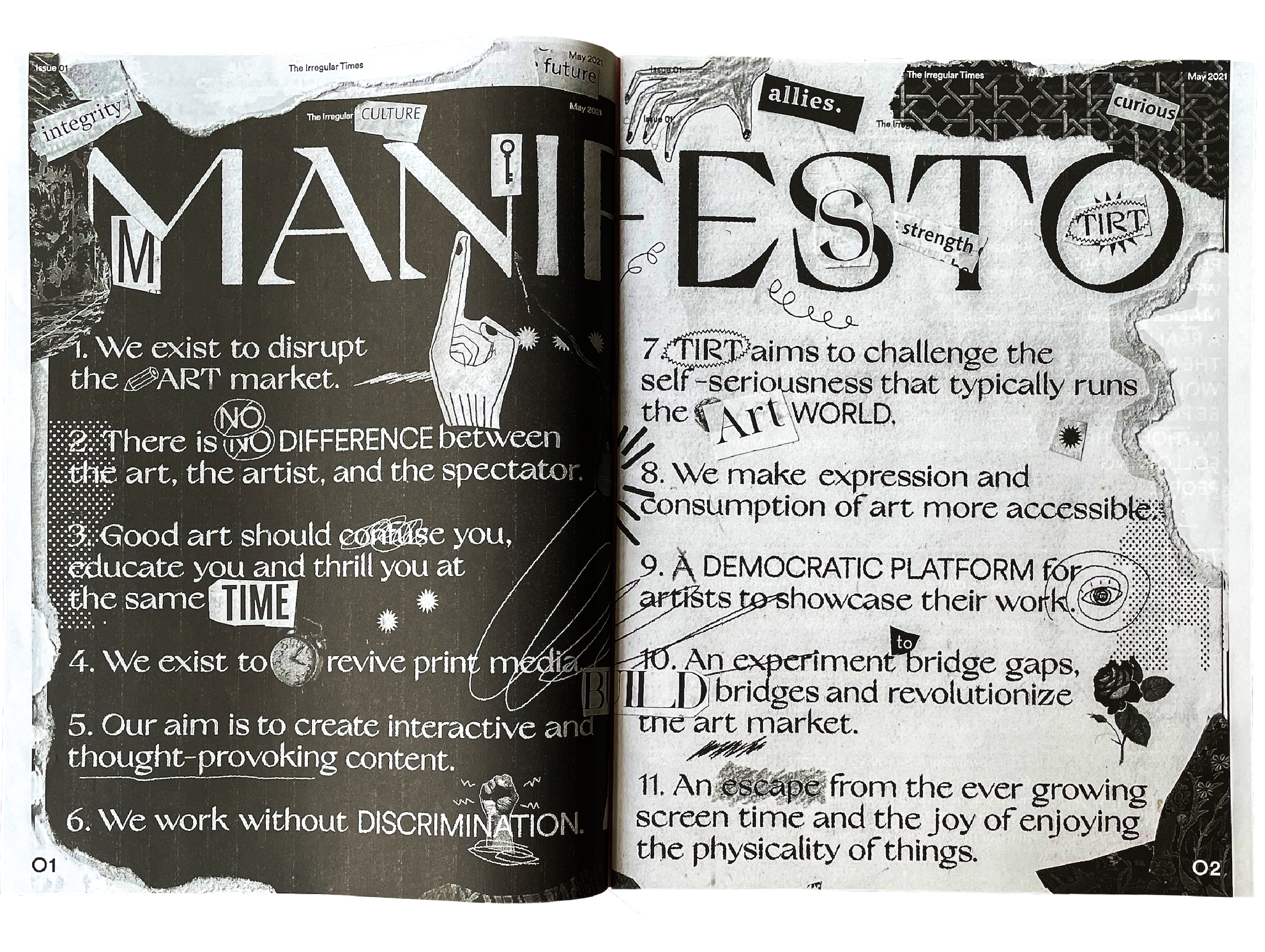
What is TIRT?
There’s nothing predictable about the debut issue of The Irregular Times. Each of the 50 loose pages that come together to form the first edition of India’s new quarterly art and design newspaper is packed full of unexpected, alternative stories spanning photo series, intimate interviews with artists and essays about little pockets of India culture, from lesser-known craft communities to the rise of regional rap music.
“The newspaper is an opportunity to provide new perspectives at the intersection of art, media, activism, politics, and contemporary culture,” says managing editor Tarini Sethi and publisher Anant Ahuja. “With the quarterly issue, we aim to amplify the endless possibilities of zine making and zine culture in our country, highlight pressing stories, and create interactive and thought-provoking content, all the while challenging the self-seriousness that typically runs the art world.”
“Glitchy graphics and doodles underscore the lo-fi, DIY aesthetic of the newspaper”
Titled Please Wait For the Host to Start This Meeting the first edition nods at “the year that was and continues to be, and the impact of the digital wormhole on our everyday lives”. Tucked inside its pages is Chalo Dilli (which translates to ‘Let’s Go To Delhi’), a powerful photo series by Harsha Vadlamani that explores the culture of dissent and protest in India, with portraits of protestors who travel from across the country to meet at Jantar Mantar (a popular space for dissent at the heart of New Delhi) to seek justice for themselves or their own. Other highlights include a conversation with pole artist Tanya Sudan and a Classifieds column inspired by the format of a traditional newspaper.
The design too is a treat. A drippy halo of yellow spray paint circles Anurag Tagat’s essay on rap artists across India using their regional native language to make music rooted in politics and social identity. Elsewhere, glitchy graphics and doodles underscore the lo-fi, DIY aesthetic of the newspaper.
Who’s behind it?
Multi-hyphenate creatives Sethi and Ahuja first teamed up in 2018 to launch The Irregulars Art Fair in New Delhi, ‘an anti-art fair’ for independent and underrepresented artists, that challenged the idea of an art fair being a siloed, elitist affair. With the cancellation of their 2020 edition, the duo were looking for an alternative format to reimagine the fair. “Suddenly everyone’s calendars were flooded with virtual meetings and events, it just didn’t feel right to add more noise to that ecosystem,” says Ahuja. “We realised that Tarini’s love for analogue printing and my obsession with newsprint was something worth tapping into. And so an idea was born, and it was pretty simple: if people can’t come to our events and experience the art physically, let’s bring the art to them in the comfort of their own homes.”
So they teamed up with creatives across the country such as Mumbai-based multidisciplinary studio BunxPav who headed the design and creative direction of the newspaper by working across Zoom calls. The last page, with a collage of screenshots from various meetings, gives the reader a peek at the intensive, months-long process that led to TIRT.
“We aim to amplify the endless possibilities of zine culture in our country, all the while challenging the self-seriousness that typically runs the art world”
Why else should I read it?
“We want people to learn a new craft in each issue, which is why we added a DIY zine insert,” says Sethi. “We encourage readers to cut the page out, fold it, make their own zine and really go to town with it.” In the centrefold is another surprise: a risqué illustration by Aditya Verma, titled Adults Anonymous. “Our intention with the adults’ colouring page was to break the taboo of sex, sexuality and nudity in our country,” Sethi explains. “We want to tell people that it’s okay to talk about and appreciate sex, and it’s okay to debate our archaic institutions.”
With every turn of the page, TIRT reveals curious new finds, from a recipe for a seasonal pumpkin chaat to an essay about a cult bookshop tucked away in a street in Bengaluru. There’s something in it for everyone.
Ritupriya Basu is a design writer based in India
